The best RAM for gaming in 2021
With the best RAM for gaming, you can ensure that your CPU and graphics card are running optimally. Upgrading your RAM is often the easiest (and cheapest) way to boost your gaming PC's performance. Now that graphics cards are nearly impossible to find, a RAM upgrade might be the best way to bridge the performance gap—it can be just as vital, and it'll mean whatever GPU you have isn't waiting for resources to be freed up.
Overall, for a straightforward RAM choice based on speed and capacity, choose a 16GB or 32GB set at 3,200MHz for Intel processors, or 3,600MHz for AMD's latest CPUs. That way, whichever platform you're using should perform admirably. There's not much point going for RAM with over 5,000MHz on Intel CPUs. But there are other options worth considering if you want to delve deeper into the specifics.
If you're wondering exactly the kind of difference gaming RAM can make to your system, we cover all of this and more in our RAM speed for gaming deep-dive—including the slightly more technical memory latency metrics. Today there are more affordable low-latency options around, many perfect for AMD Ryzen gaming PCs, so don't be afraid to chase down a pair of swift RAM sticks for maximum system optimization.
Whatever your specific needs may be, we’ve chosen some of our favorite options for PC gaming below. Here's our list of RAM kits we've tested at differing price points so that you can spend your money well.
Best RAM for gaming 2021
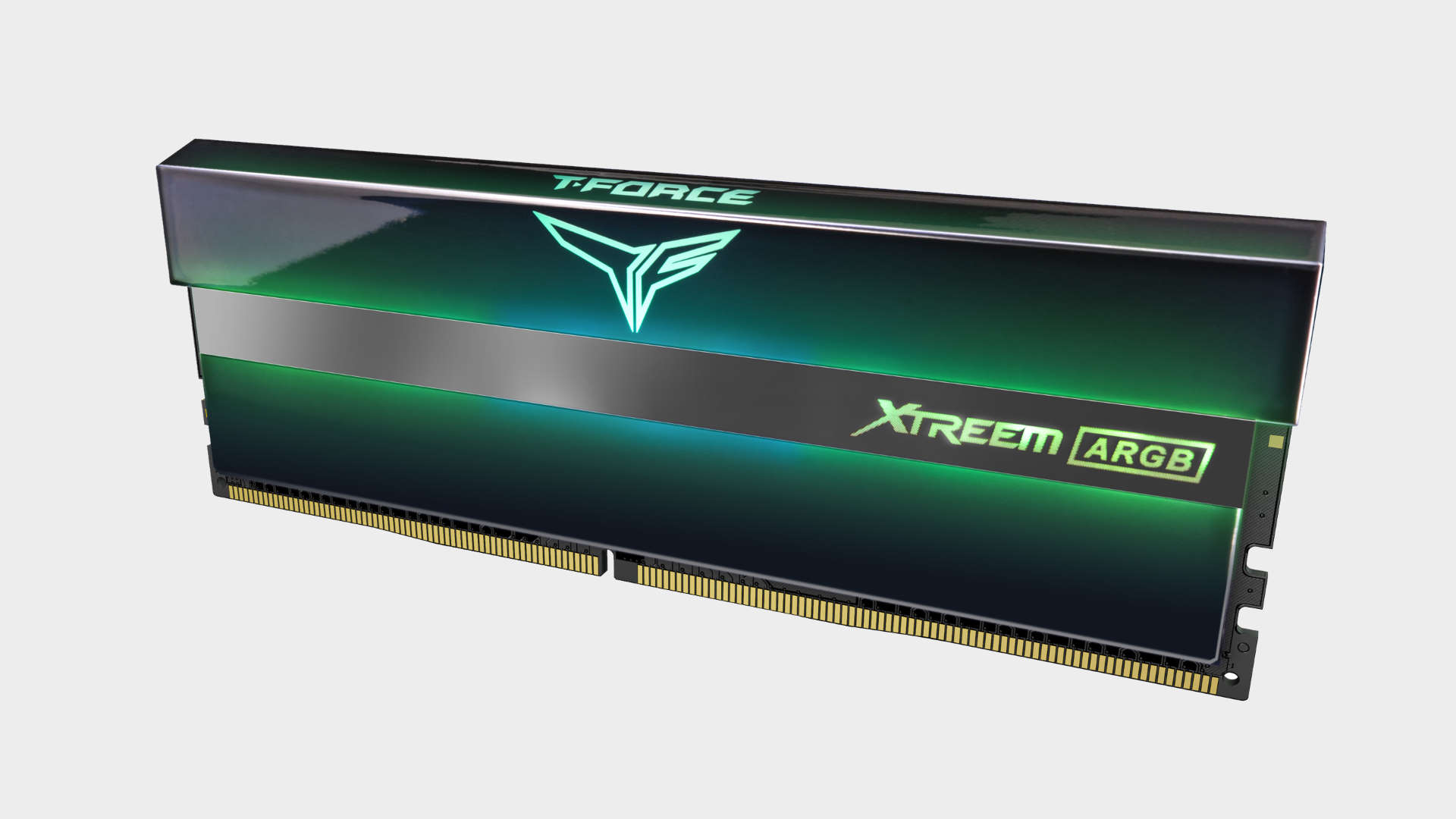
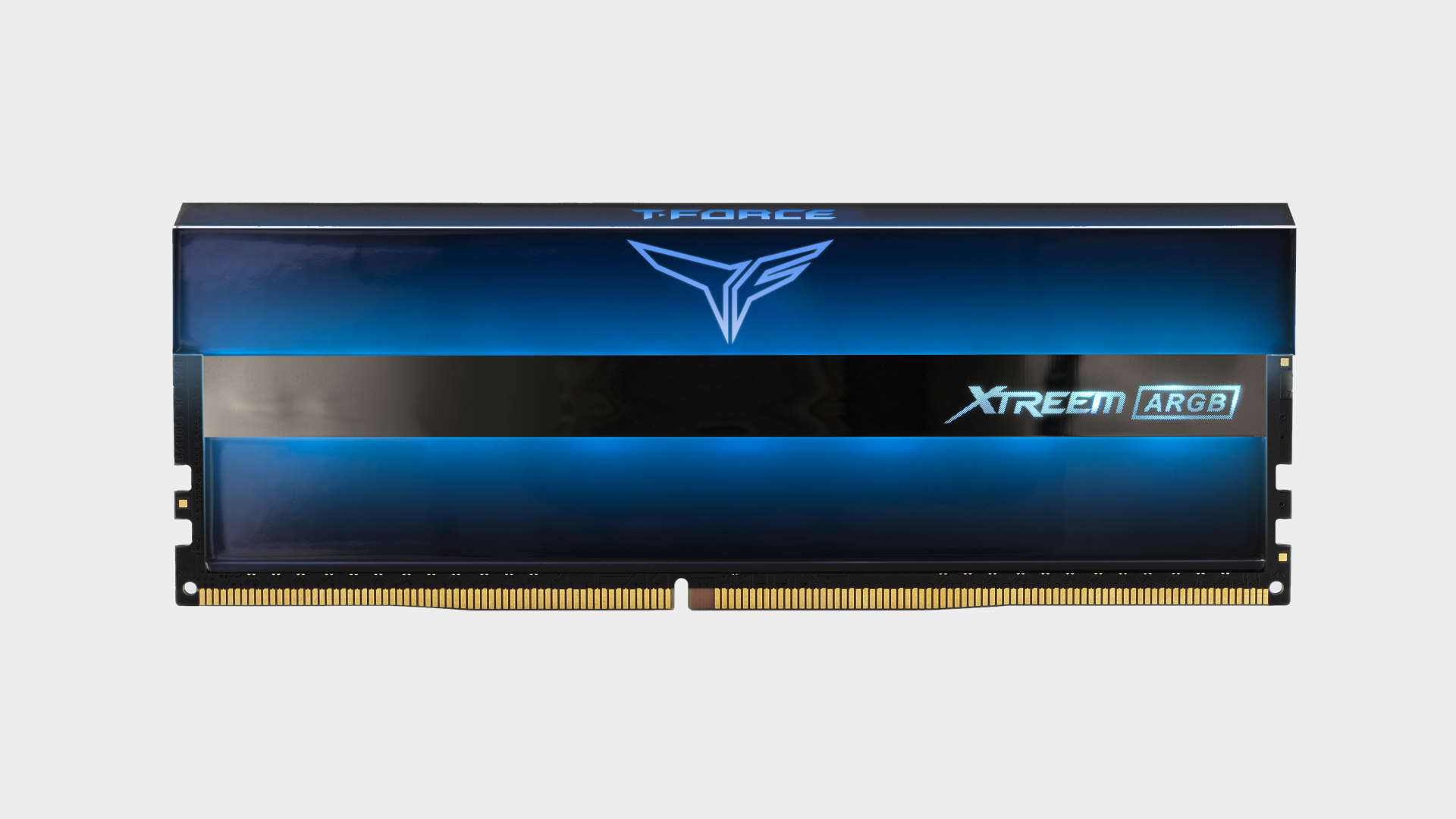
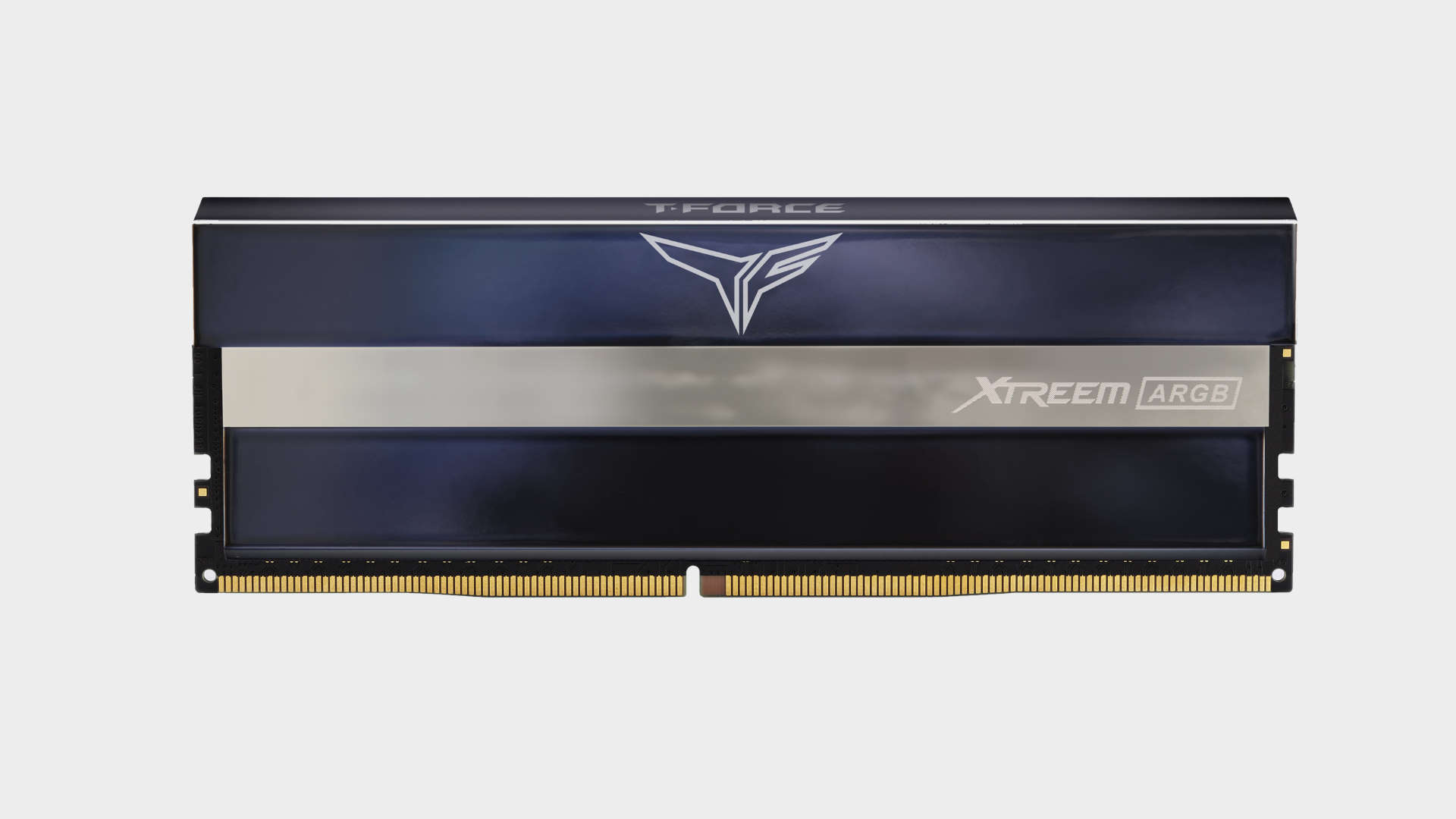
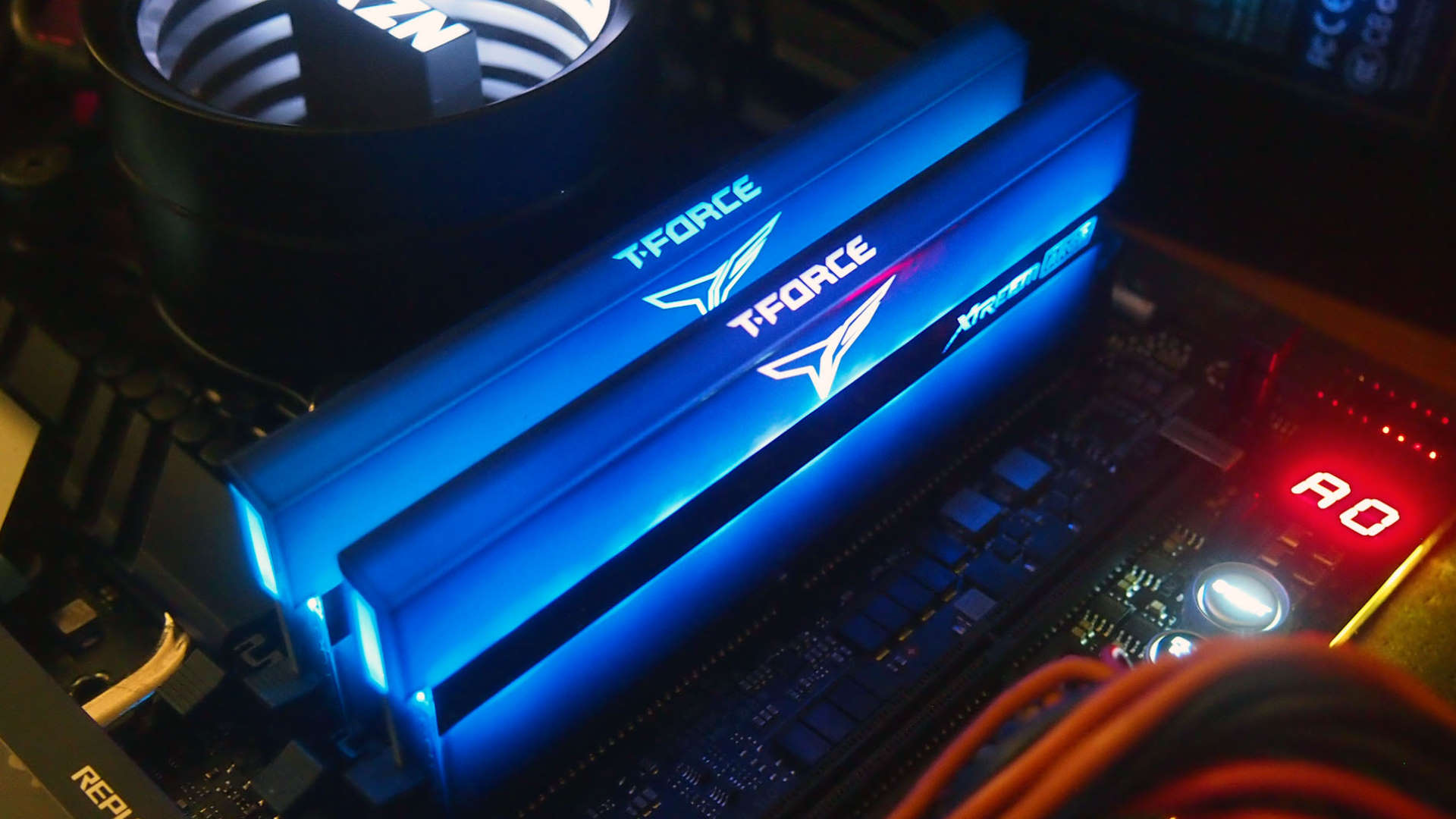
With a CAS latency of 14, the Team Xtreem kit leads the way in low-latency RAM favored by gaming PCs, especially AMD Ryzen rigs. As such, it takes the top spot as our pick for the best RAM for gaming.
Not all that long ago, a kit as well-rounded on both price and performance would've been a distant dream. However, a recent DRAM price crash and an increasing process maturity in DDR4 production mean kits such as this can often be found for far less than they would've been only a couple of years ago.
That's great news for anyone eyeing up AMD's Ryzen CPUs, which favor a memory clock around the 3,600MHz mark—thus ensuring the Infinity Fabric clock is kept at a 1:1 ratio with your memory and your chip ticking over happily with minimal latency penalties. A kit such as the Team Xtreem is optimal for AMD Ryzen CPUs.
Even the RGB lighting on this kit is kept in moderation. Each DIMM features diffused RGB lighting that creates a glow-in-the-dark effect. And while that doesn't sound great on paper, it's surprisingly smart in the flesh.
If you want to eke out all your CPU has to offer and ensure your system looks fresh in the process, the Team Xtreem ARGB kit is a great option—just a shame about the name.
Read our Team Xtreem ARGB DDR4-3600 C14 gaming memory review.
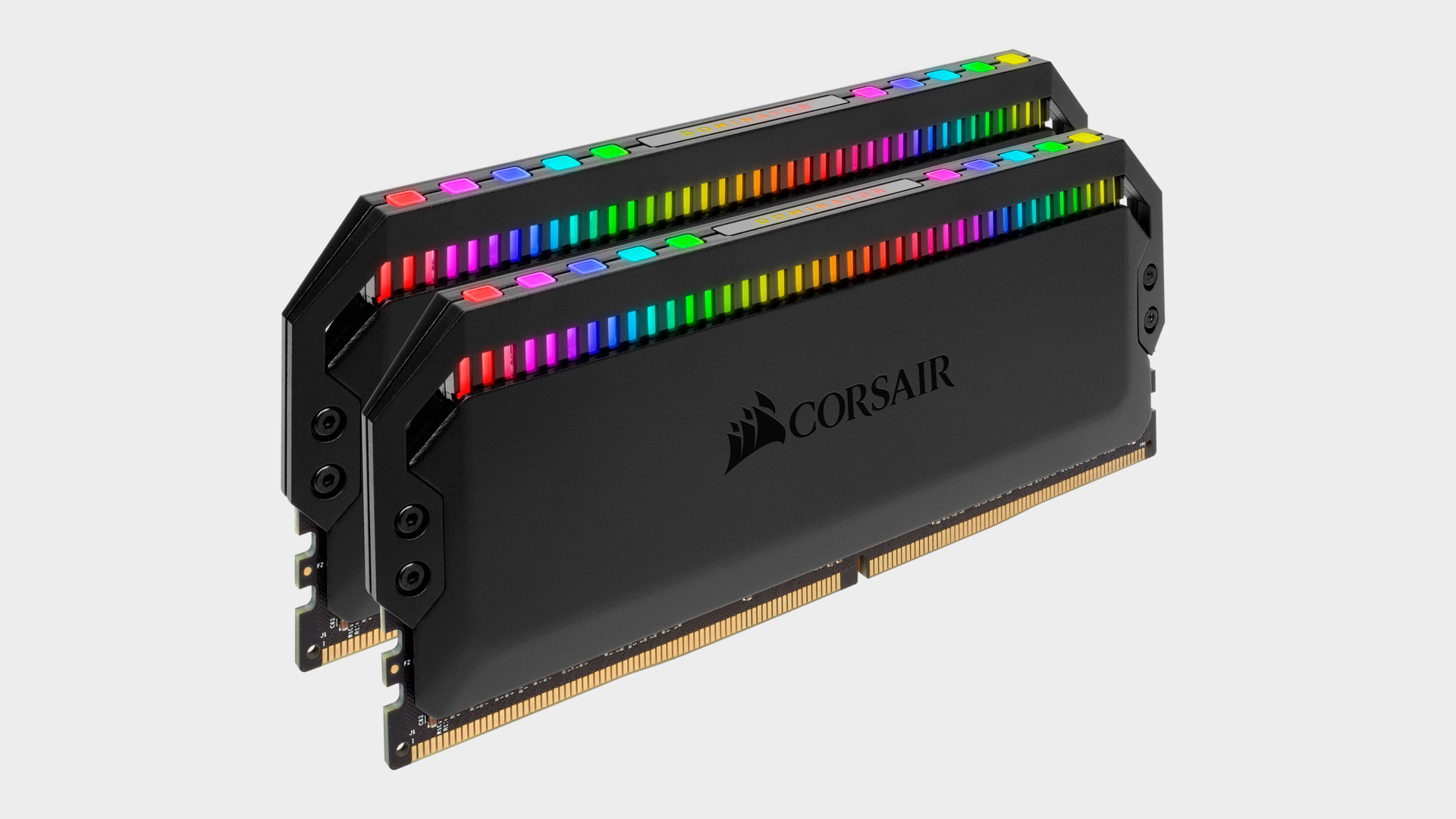
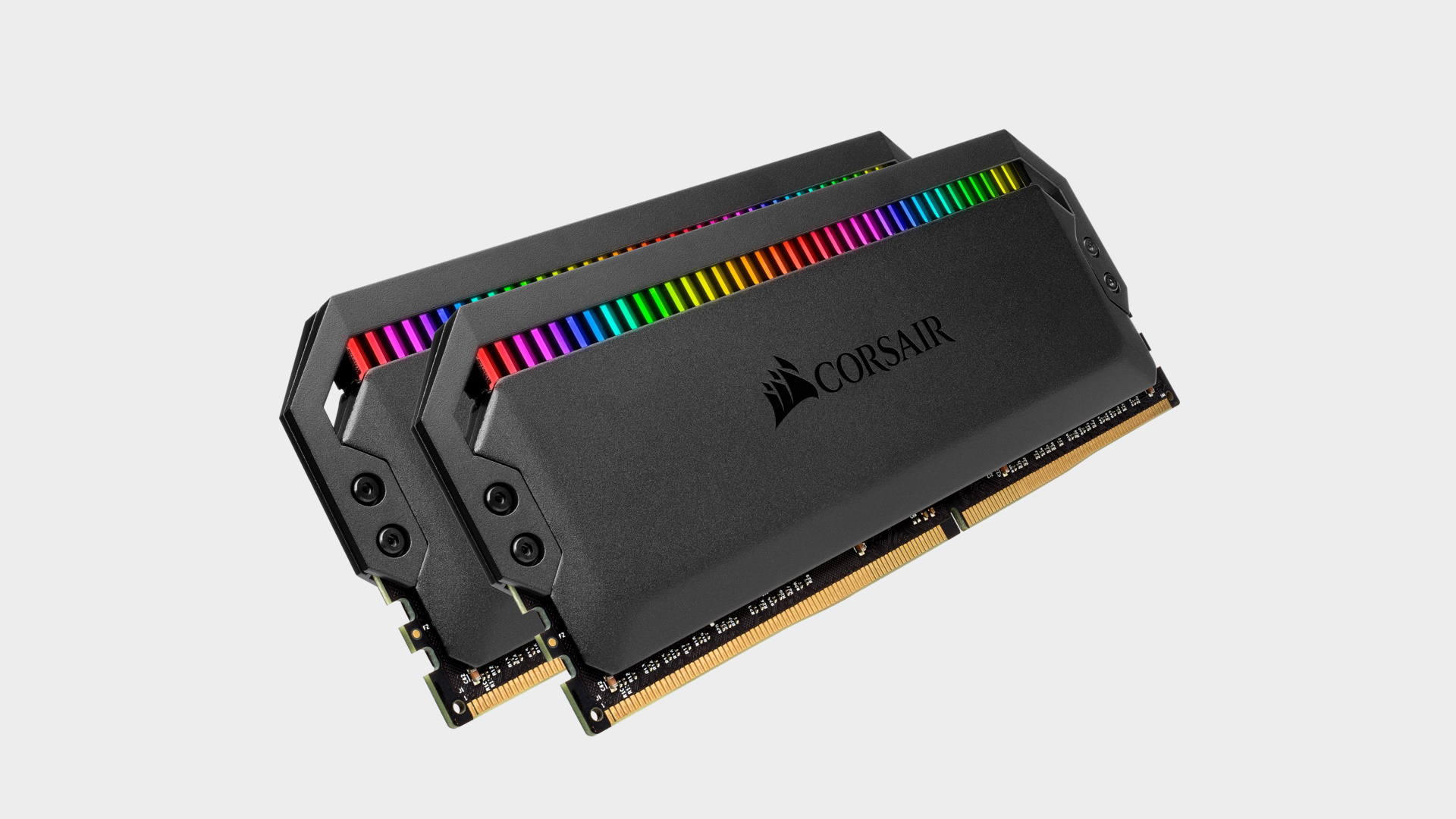
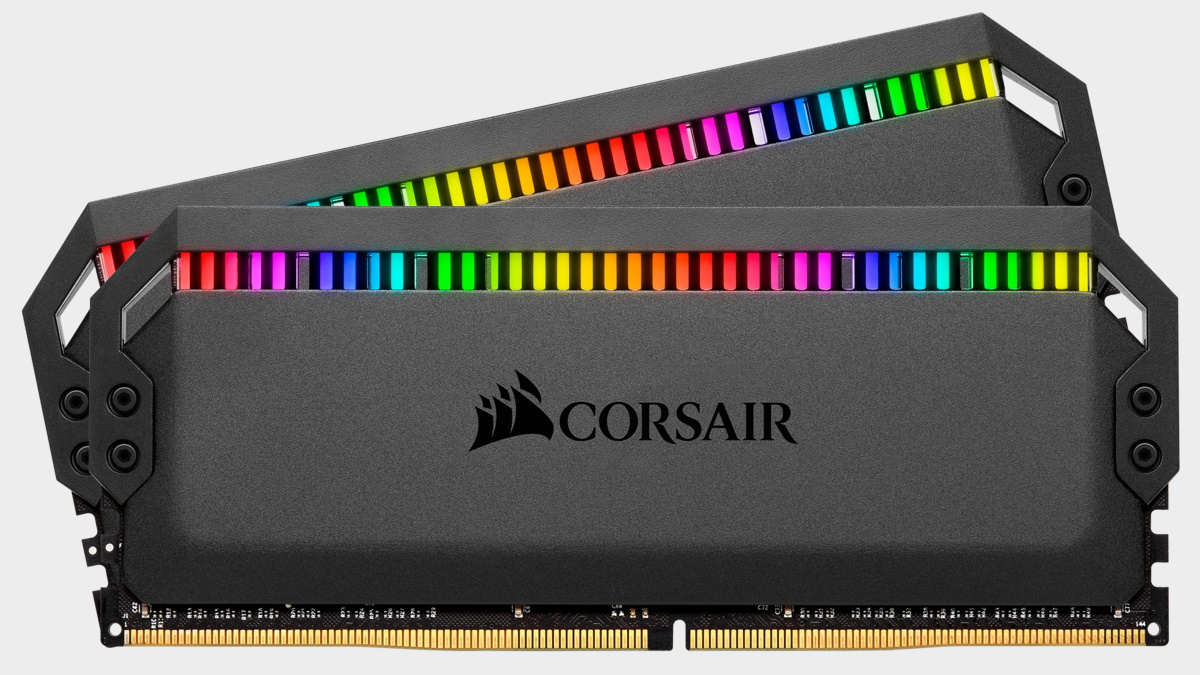
Corsair has outdone itself with the Dominator Platinum RGB. The original DDR4 kit has been our favorite high-end memory bundle for quite some time now. Its sleek exterior, patented DHX cooling technology, and unrivaled performance has made it a formidable flagship over the years, often topping our best RAM for gaming list. Now, the iconic Dominator Platinum is back with a stealthy new design and Corsair's new Capellix LED technology.
The Dominator Platinum RGB takes the same best-in-class performance as the original, adds higher-clocked SKUs, and 12 individually addressable Capellix RGB LEDs. The new LEDs are brighter and more efficient than previous iterations and are only available from Corsair. Combined with Corsair’s iCUE software, the Dominator Platinum RGB has become both the best RGB and high-end performance kit.
The price doesn't differ too much from the original non-RGB Dominator Platinum, but you’re still paying a hefty premium than some of the other kits mentioned in this guide. We still think it's well worth every penny if you can afford it, whichever capacity kit you go for.
Read the full Corsair Dominator Platinum RGB review.
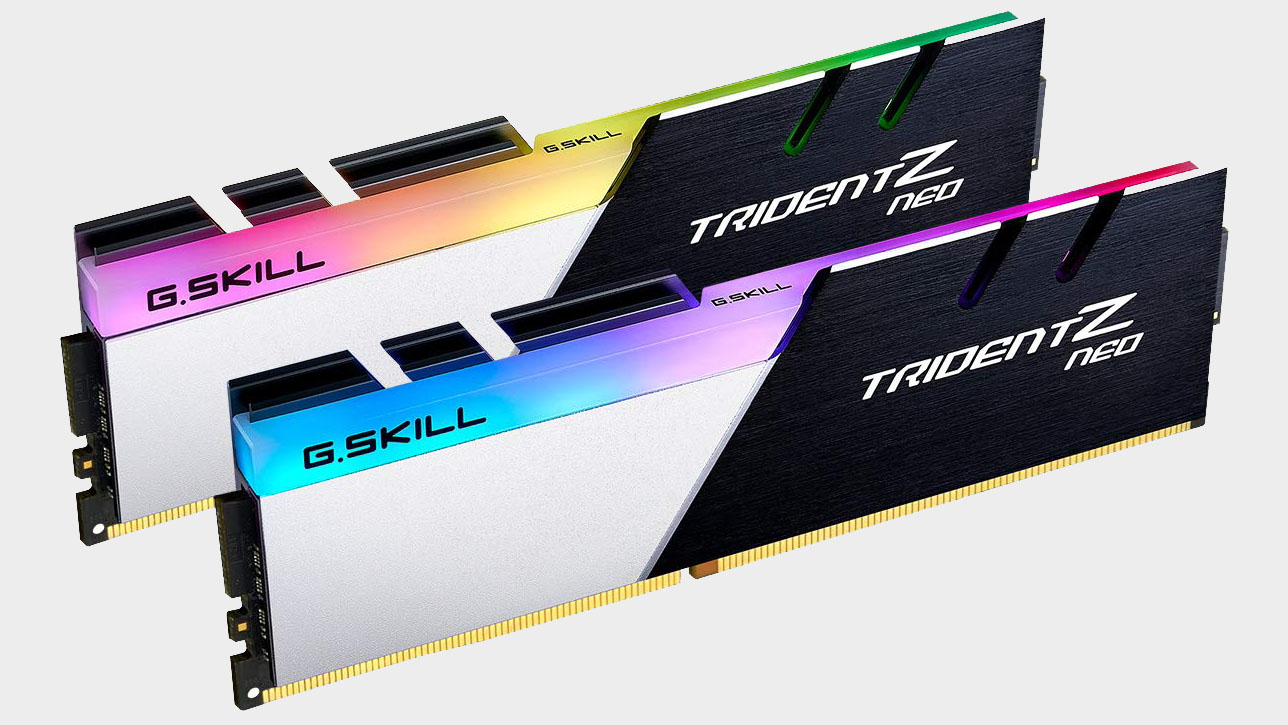
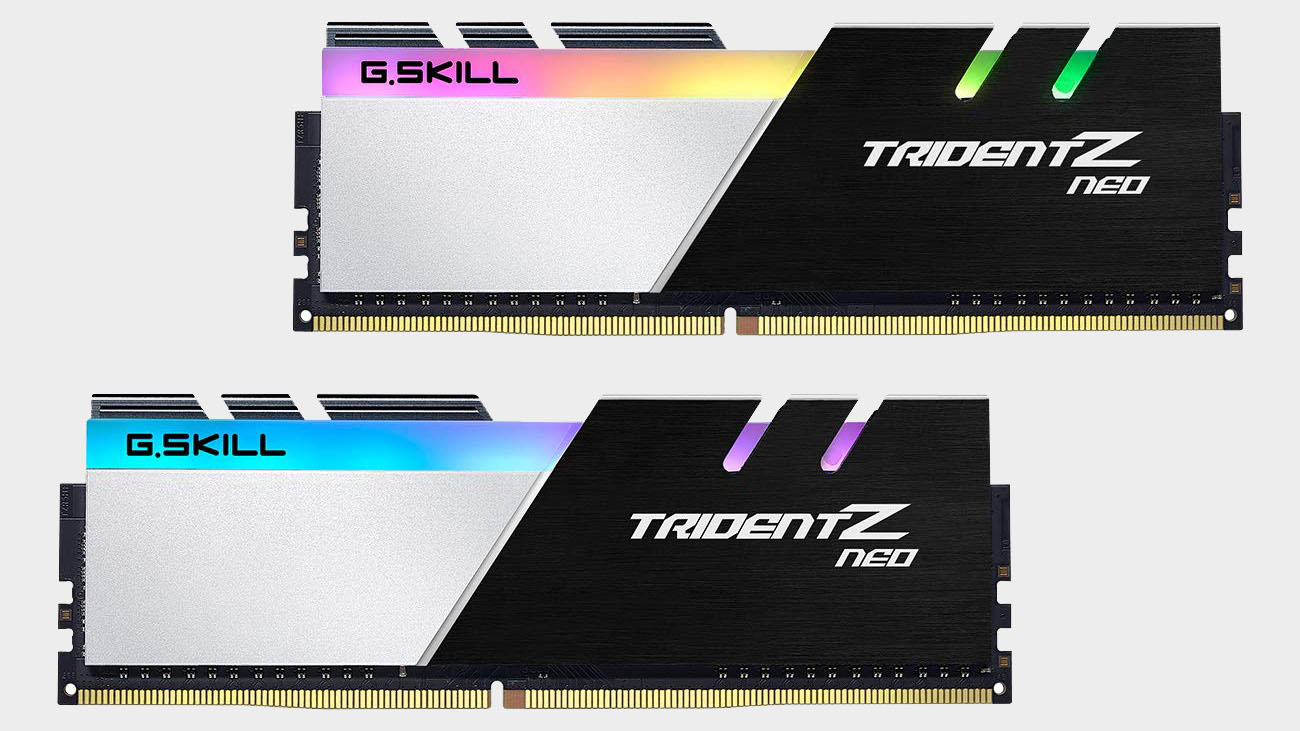
G.Skill’s Trident Z RGB RAM has dominated our guide for years now, and it’s no surprise the company’s Trident Z Neo series has also earned a spot here. Like the original Trident Z RGB series, the Trident Z Neo comes equipped with brilliant RGB lighting done in a very tasteful manner. More importantly, the Neo series is optimized for AMD Ryzen builds, making this budget-friendly option the perfect choice for budget-conscious Ryzen PCs.
Similar to the overall performance of your Ryzen PC build, the Trident Z Neo offers a fantastic bang for your buck. You can get a 32GB kit for under $200, which means you can also easily upgrade your machine to an (admittedly unnecessary) 64GB of high-speed DDR4 memory down the road.
Like its counterpart, the Trident Z Neo comes in various speeds and configurations ranging from 2,600MHz all the way up to 4,000MHz. Each module comes equipped with five individually addressable RGB LEDs that can light up any PC build beautifully.
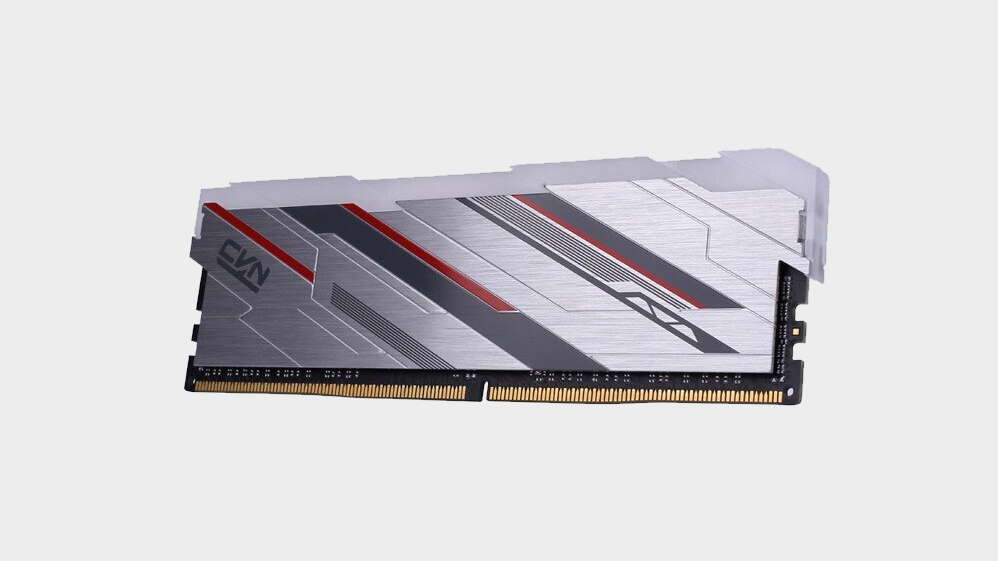
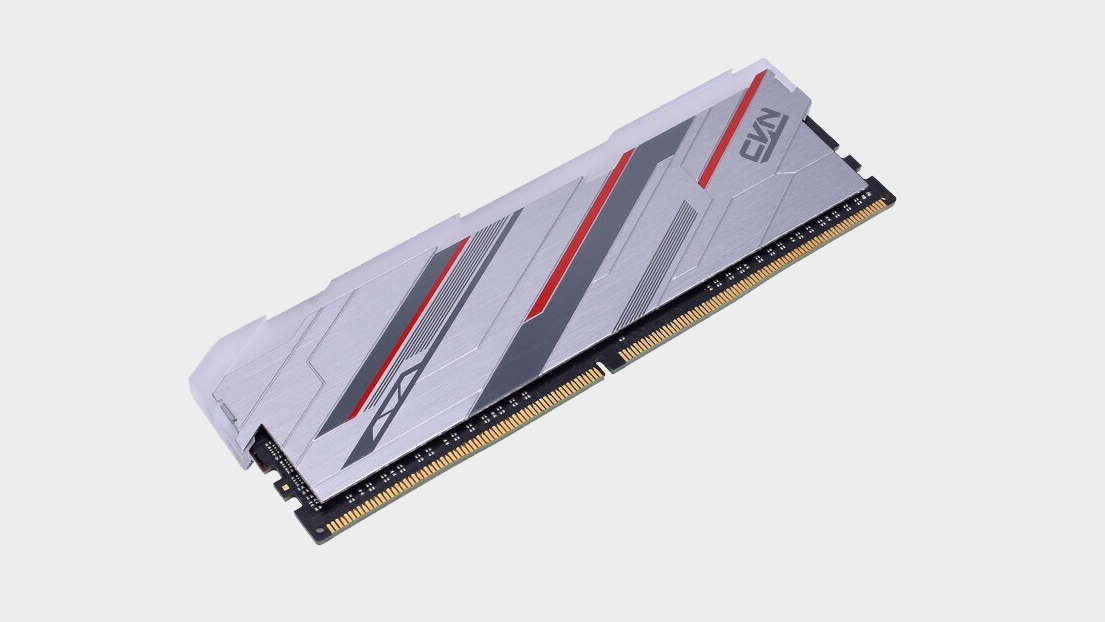
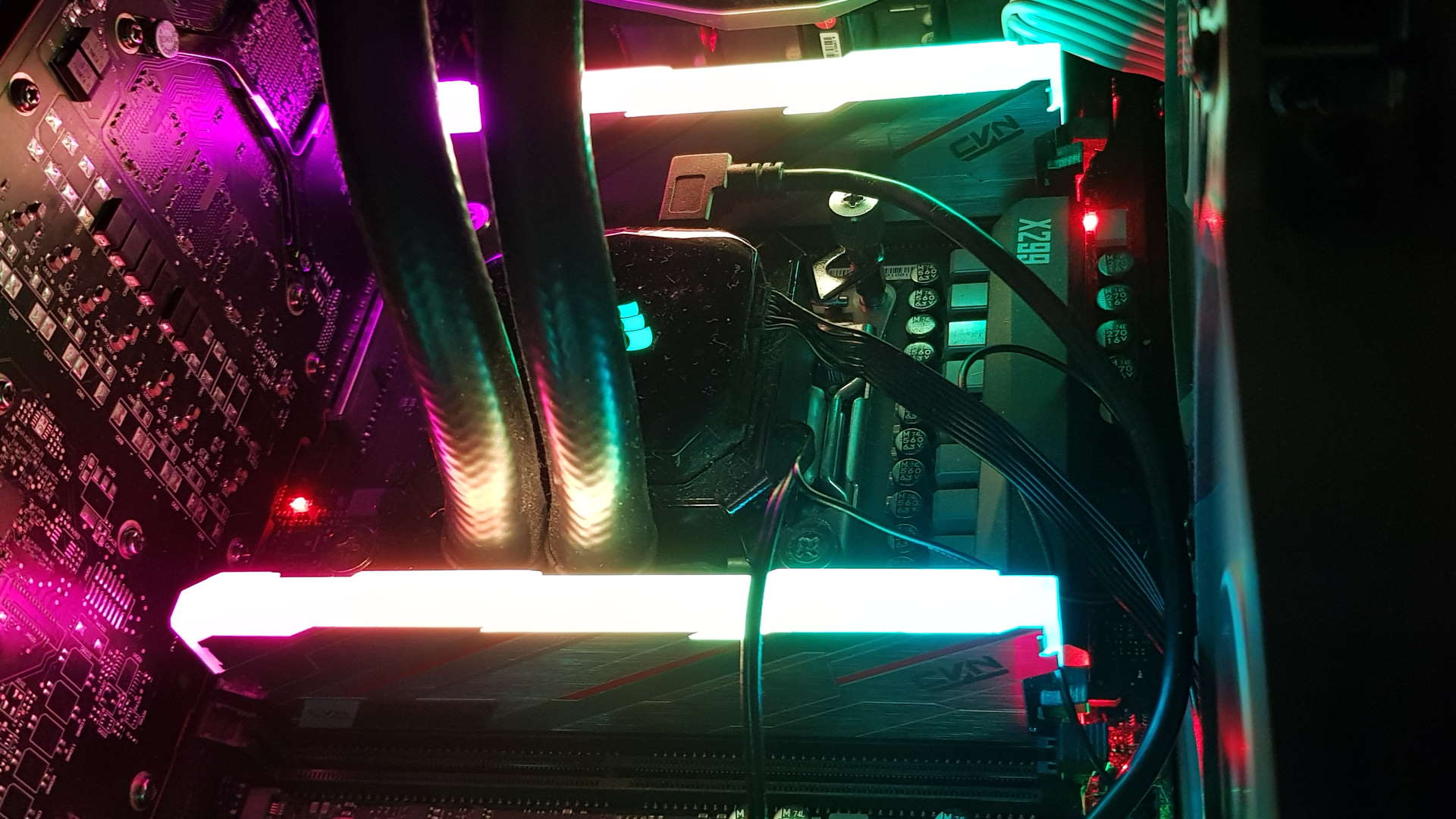
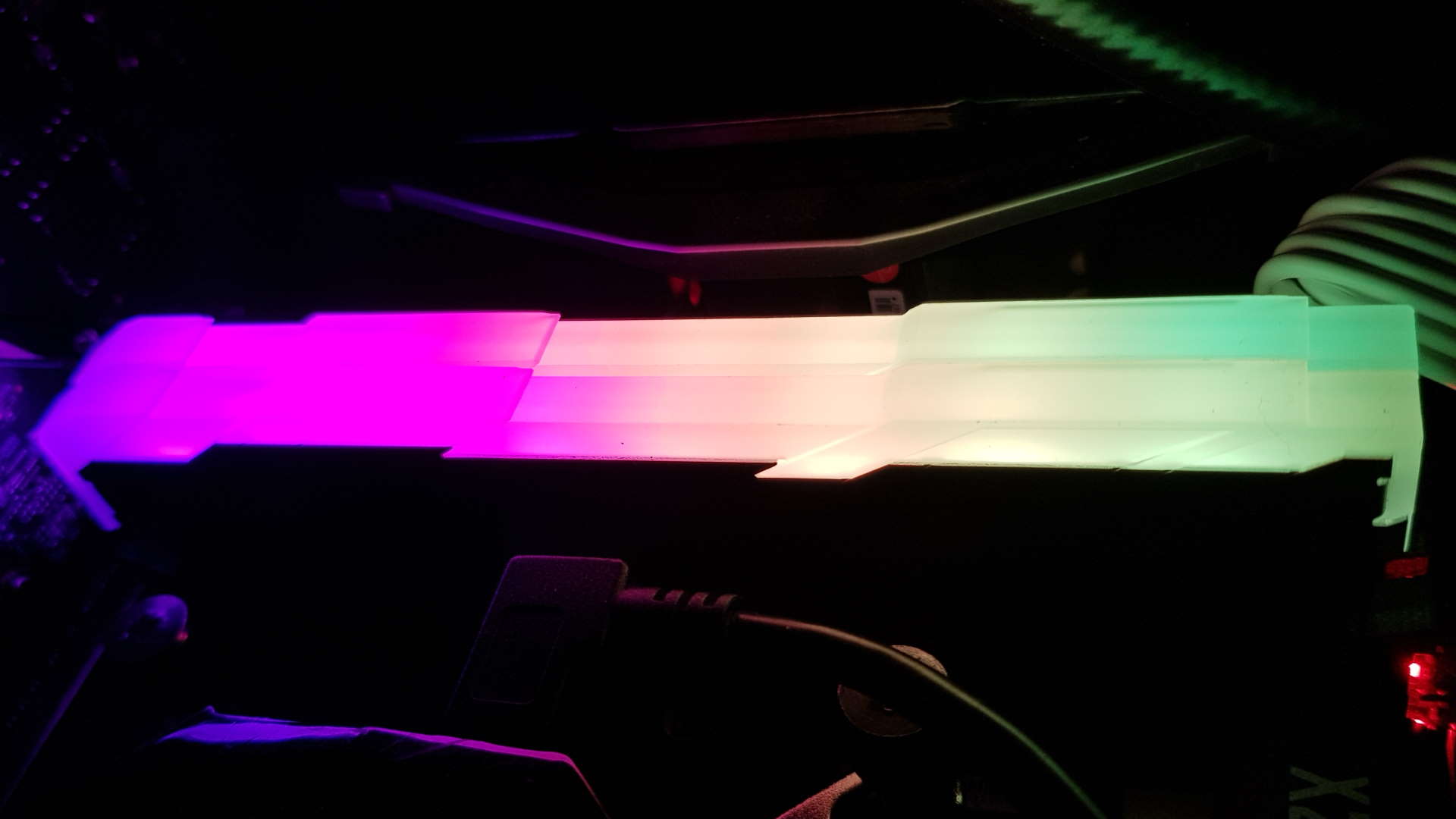
Okay, so RGB LEDs on your memory sticks don't make your rig go faster, but they can really tie the room together. Or at least your PC's overall aesthetic. And the Colorful CVN Guardian DDR4, at just $95 for a dual-channel 16GB kit, is probably the most affordable route into nailing that all-important RGB look for your gaming system.
At their heart, the CVN Guardian memory modules, which come in 8GB trim, have decent, if a little basic, CL16 timings and are using the Micron E-die DDR4 memory chips. That makes them a good fit for a Ryzen build as it's a little easier on the memory controller than something like the Samsung B-die. That means you might get higher frequencies, though you may not be able to tighten up the actual timings as much.
But for an affordable DDR4-3200 kit, the CVN Guardian performs well, instantly taking to the XMP settings of our test board. There is the potential for overclocking too with the kit capable of hitting at least DDR4-3600 with some slightly looser timings, even still at CL16.
If you're just after some solid, affordable, good-looking memory the CVN Guardian is a great option. It's using recognized Micron chips, both the aluminum heatspreader and RGB lighting looks great, and there is some headroom here too. The only downer is that we can only find one outlet selling it: Aliexpress.
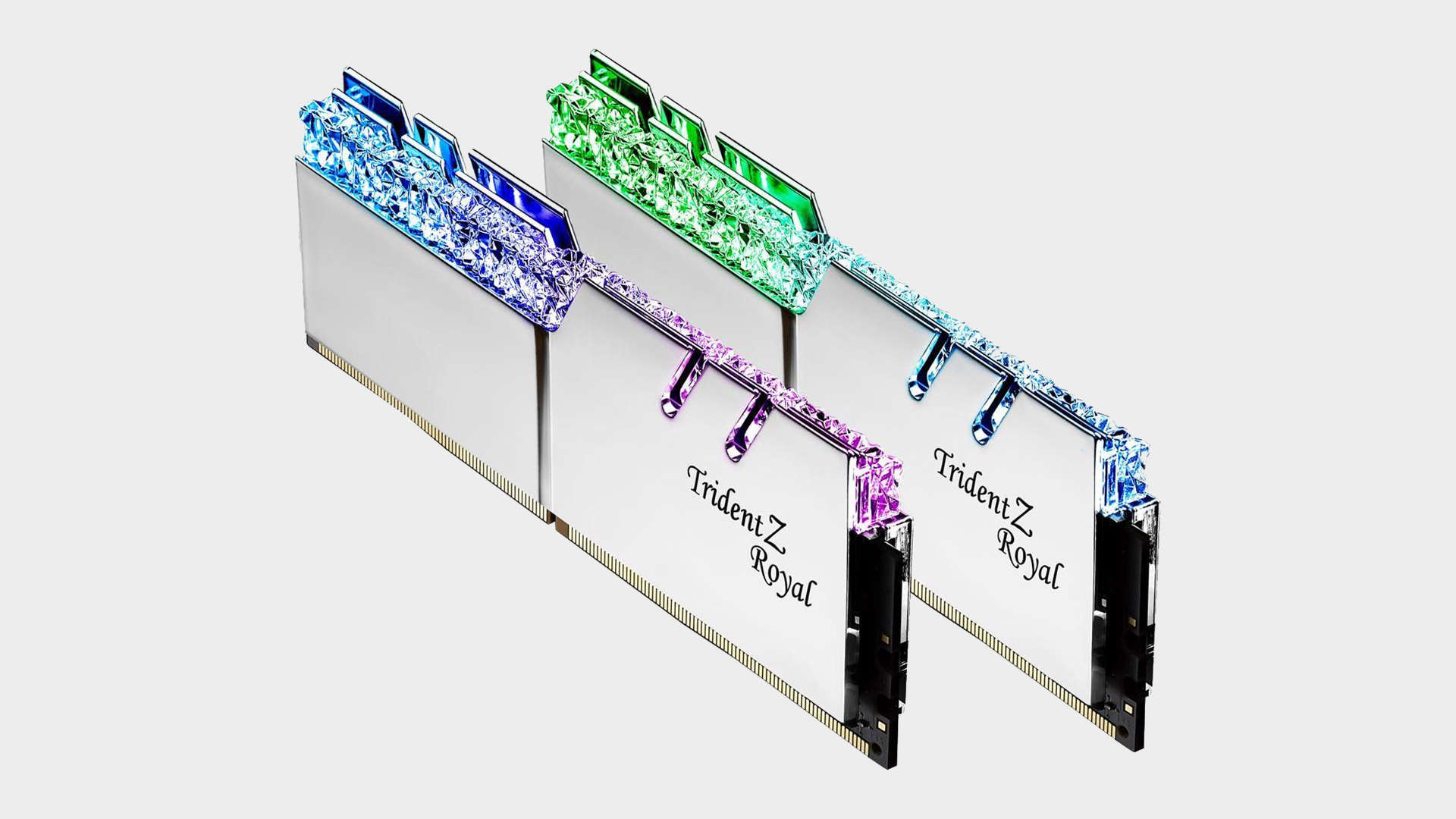
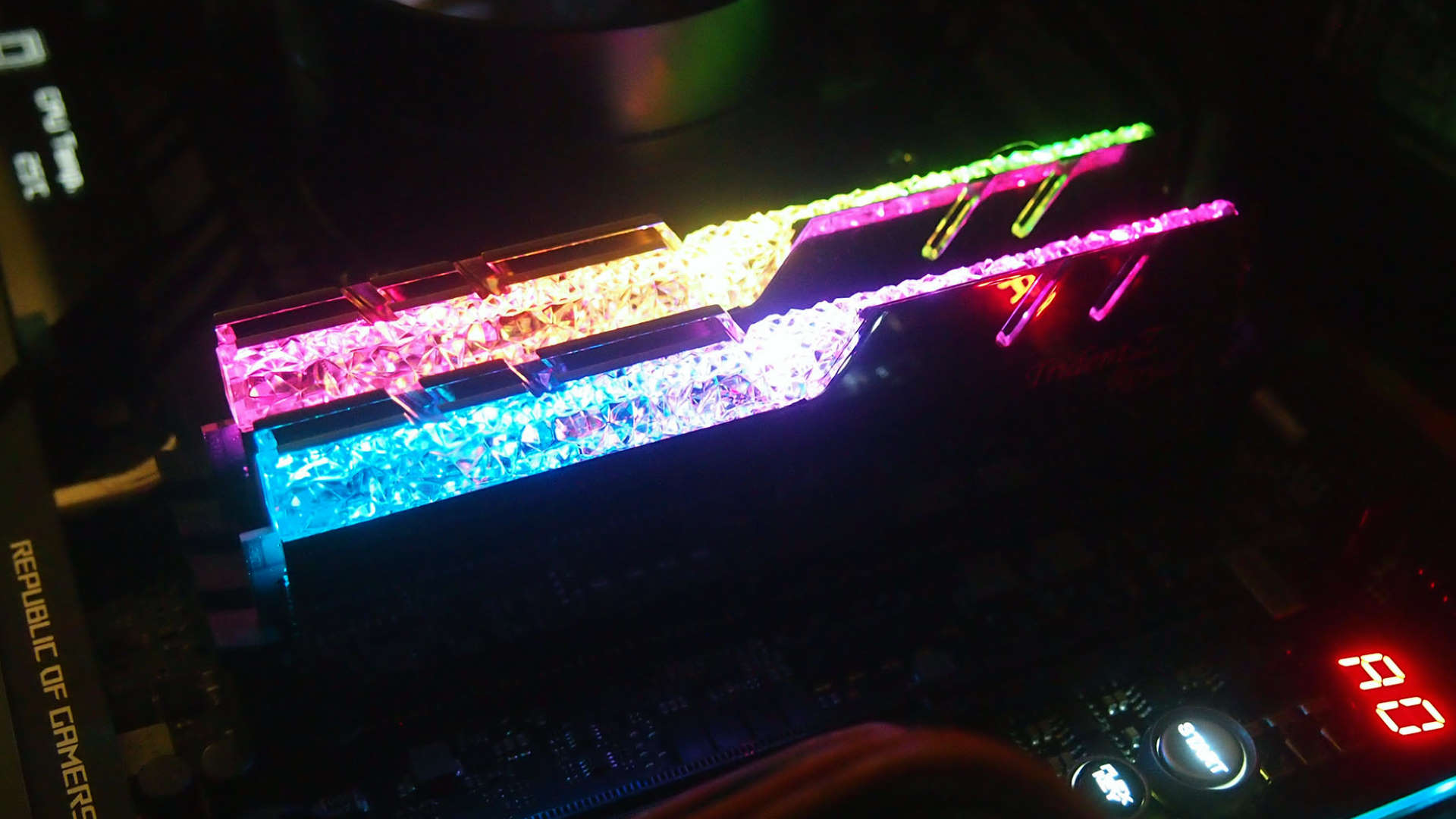
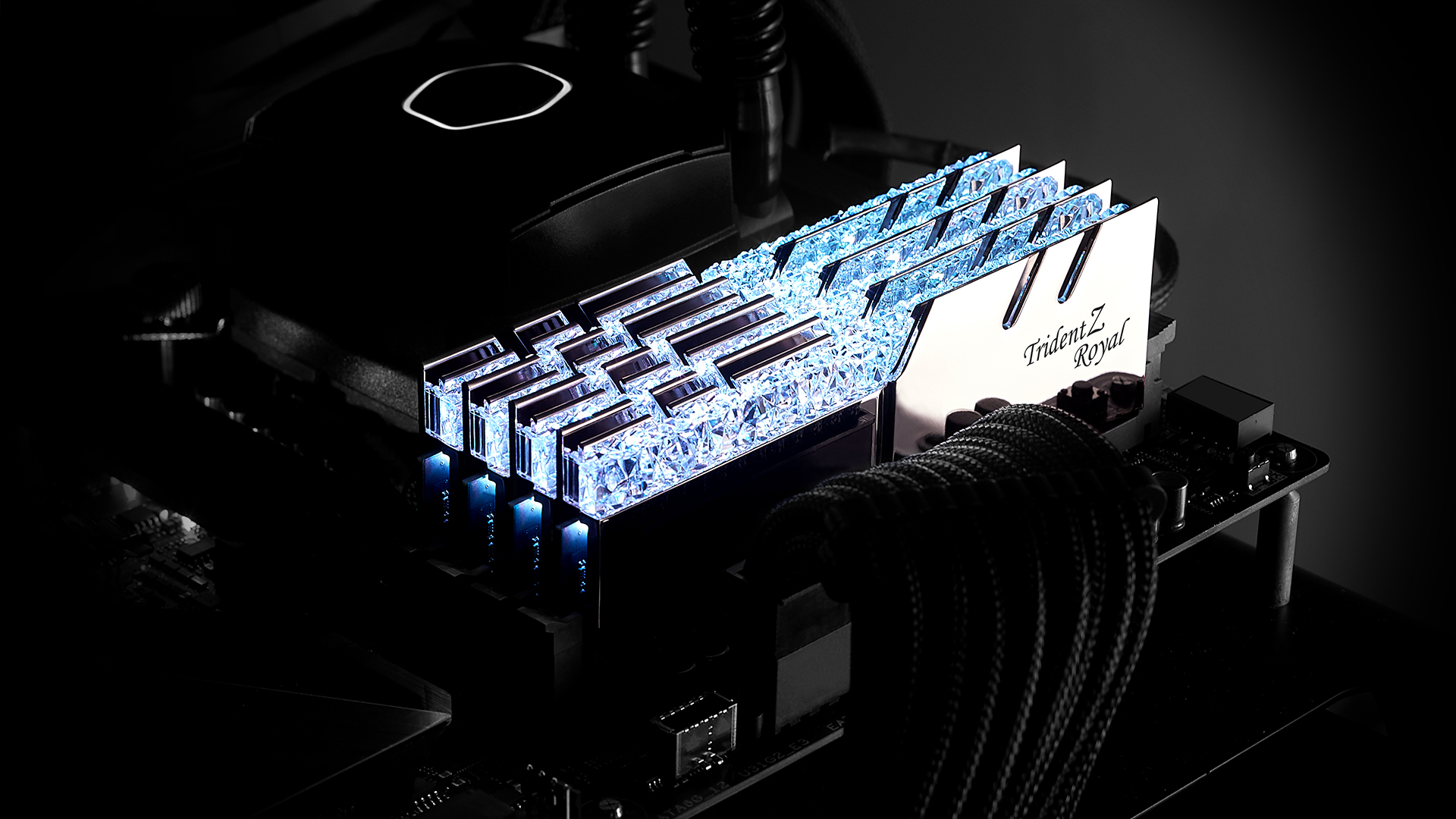
Known for superb binned memory and high-speed kits, G.Skill's Trident Z Royal blends 4,000MHz (effective) operation with a highly stylized design. These DIMMs are just asking to be put center-stage in a showpiece gaming PC build—and it would be far from a slouch either.
Best suited to high-performance Intel builds, such as those built around the Core i9 10900K, the Trident Z Royal makes for the perfect high-speed pairing. This kit will keep your CPU fed with the data it needs at a rapid rate, and it comes out among the top in every benchmark we could throw at it.
There's also room to overclock this kit if you see fit. We managed to push it to 4,400MHz without increasing voltage, although we were forced to lower the latency a touch for the kit to capitulate to our OC demands.
Whereas you may want to choose a slower 3,600MHz kit for AMD Ryzen, the Trident Z is a great option for most other high-end PC builds.
Readout full G.Skill Trident Z Royal 16GB DDR4-4000MHz review.
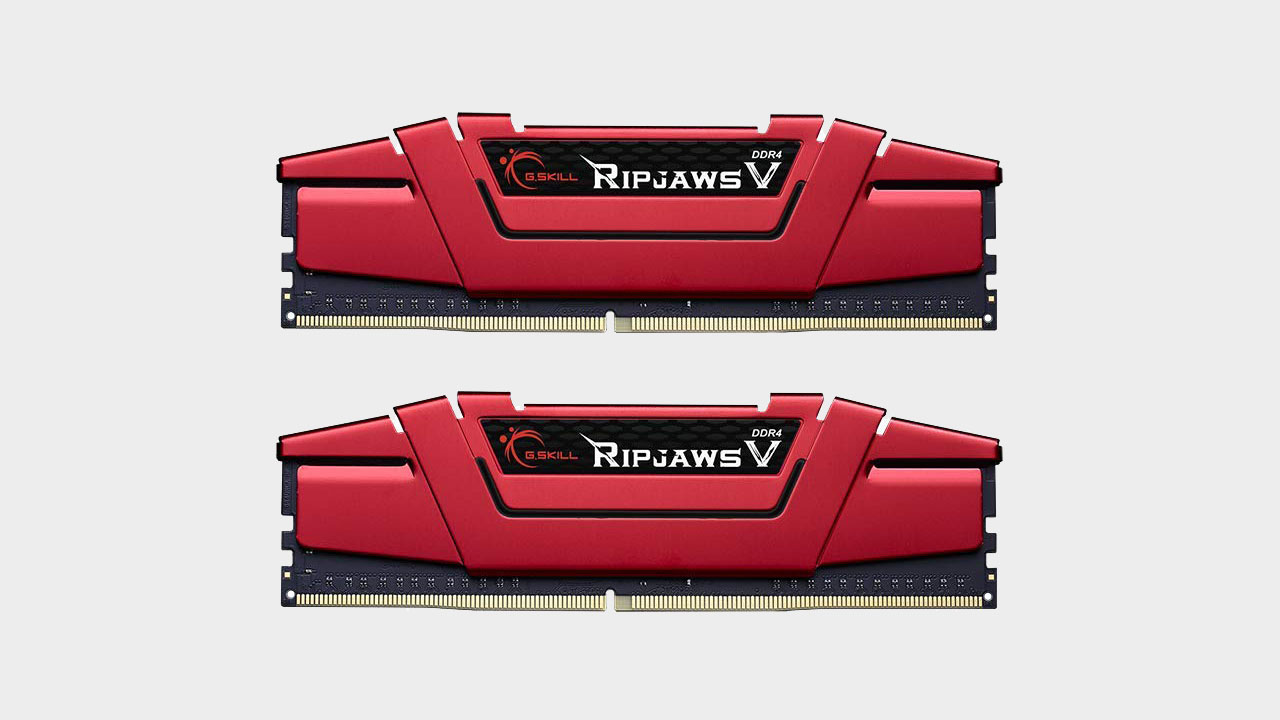
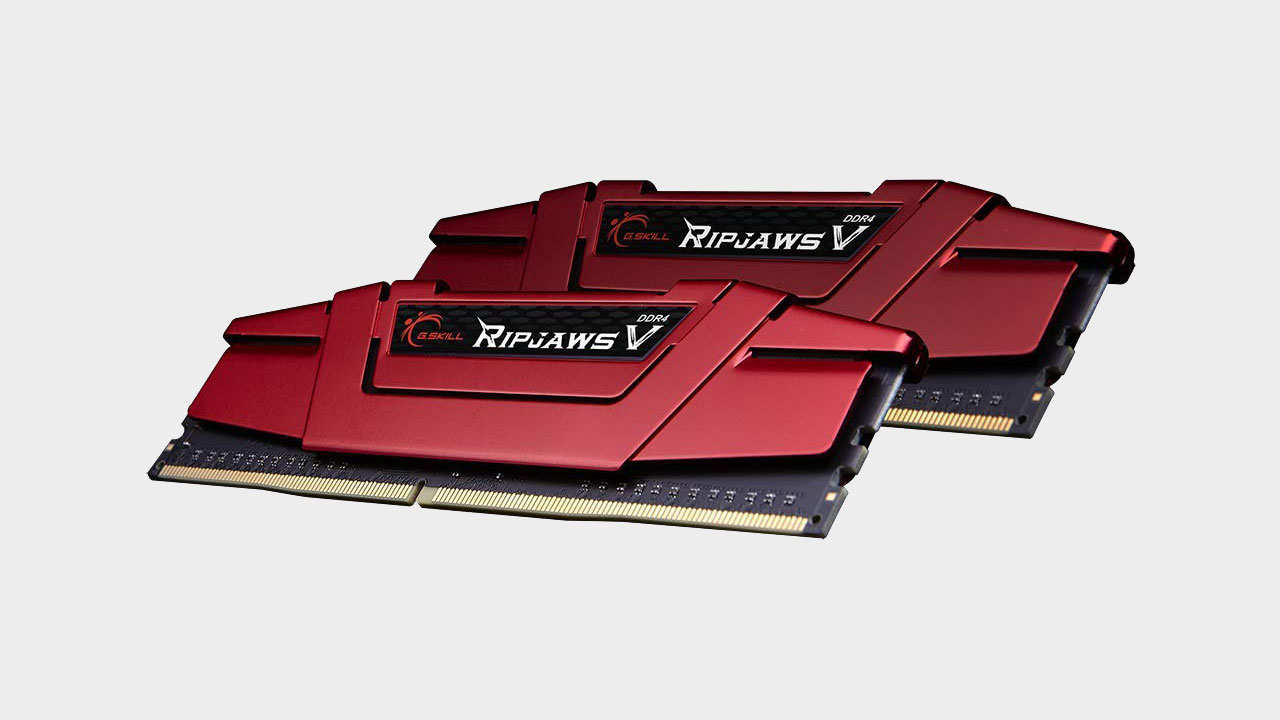
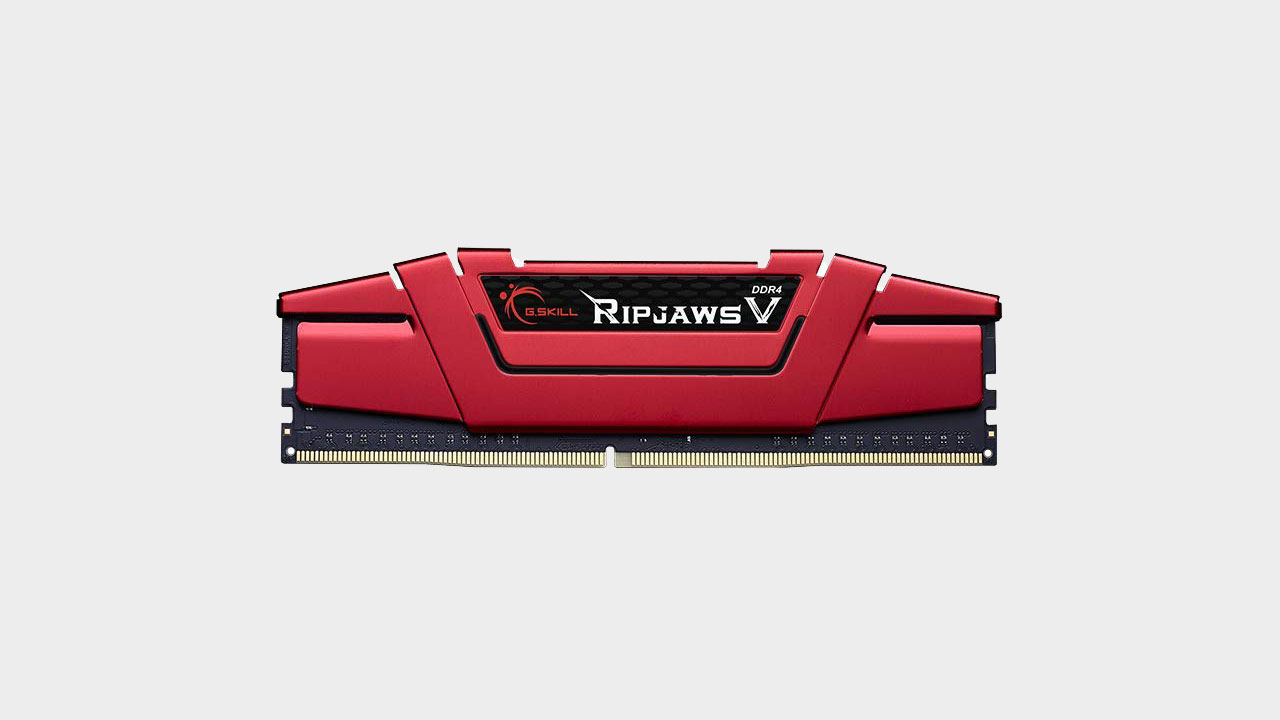

Best CPU for gaming: the top chips from Intel and AMD
Best graphics card: your perfect pixel-pusher awaits
Best SSD for gaming: get into the game ahead of the rest
The G.Skill Ripjaws V is the second generation of DDR4 memory from G.Skill, and it's clear the company listened to the feedback and criticisms from the customers. This series is more affordable, faster, and has a less tacky heatsink than its predecessor. We found the 16GB Ripjaws V kit to be the best option for a decent capacity kit that features great performance right out of the box.
Immediately, the Ripjaws V did exceptionally well in our benchmarks without any overclocking, beating several kits in the 2,400MHz range. Despite this, you can still achieve an overclock to 2,800–3,000MHz with a simple bump in voltage. You might even reach 3,200MHz or higher, though you're likely to hit some stability issues. With a reasonable price, whether running stock or overclocked, G.Skill Ripjaws V is hard to beat.
Best CPU for gaming | Best graphics card | Best gaming motherboards
Best SSD for gaming | Best PC cases | Best gaming monitors
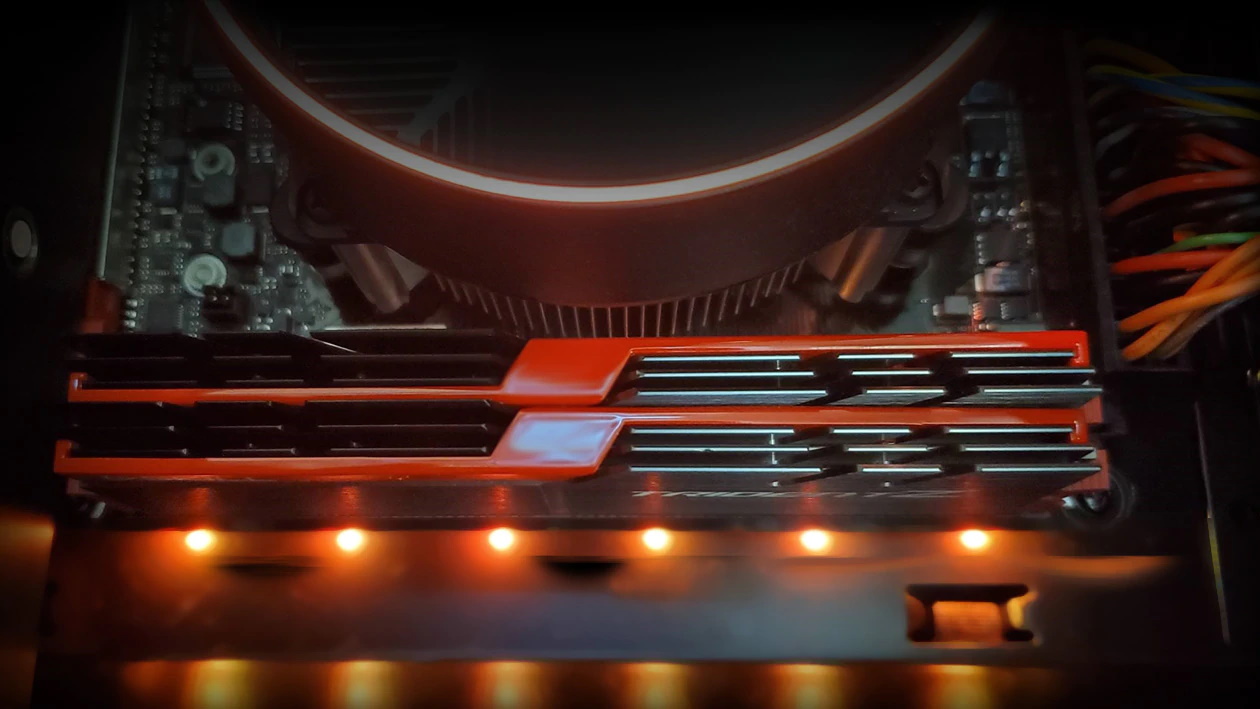
Best Gaming RAM FAQ
How much RAM do I need?
We recommend a minimum of 16GB for most serious gaming PCs (it's what we use in our high-end PC build), but it isn’t too costly to upgrade to 32GB these days, thanks to a recent pricing crash. That capacity will provide a hefty buffer if you’re inclined to multitasking, creative or intensive apps, or, y'know, heavy Chrome tab usage—check out our handy guide if you’re wondering how much RAM you actually need.
How fast should RAM be for a gaming PC?
Generally, we'd recommend you stick with two DDR4 modules for a dual-channel build, each with a minimum of 3,000MHz clock speed. That should ensure you're getting the most out of the best CPUs for gaming. With Intel, you can essentially settle for whatever the best kit you can afford is, while AMD Ryzen patrons will want to look a little deeper.
Essentially you want to aim for 3,600MHz memory for Zen 2 (Ryzen 3000) chips. For Ryzen 5000 CPUs, it has been suggested that 4,000MHz kits are your best bet.
Do I need RGB LEDs on my memory DIMMs?
No. Absolutely not. But RGB can make your machine look that little bit cooler, and we all know PCs need to run cool.
Jargon buster - RAM terminology
DIMMs - Dual In-Line Memory Module, the physical circuit board that holds the RAM chips that plugs into the slots on your motherboard.
ECC Memory - Error-correcting Code Memory, RAM capable of automatically detecting and correcting errors on the fly, generally used in highly sensitive applications, like scientific data collection or banking. Typically only used and supported on servers and workstations, most desktop boards can run it as non-ECC.
Frequency - The effective speed at which the memory operates, measured in MHz.
CL/CAS Latency - Column Access Strobe Latency, the delay between the memory controller requesting data from the RAM and the available data; the first number listed in a kit's timings.
SO-DIMM - More compact DIMM slots typically deployed in laptops, although these can turn up on tiny machines as well.
Timings - The measure in several memory clock cycles an operation requested by the memory controller will take for the RAM to complete. Lower is generally better.
XMP - eXtreme Memory Profile, instructions for the BIOS that tell it what frequency, timings, and voltage to access RAM at, a shortcut for overclocking without tinkering with each setting individually. Officially for Intel platforms, many AMD boards readily support reading XMP data (though it may go by another name like A-XMP or DOHC).

Post a Comment